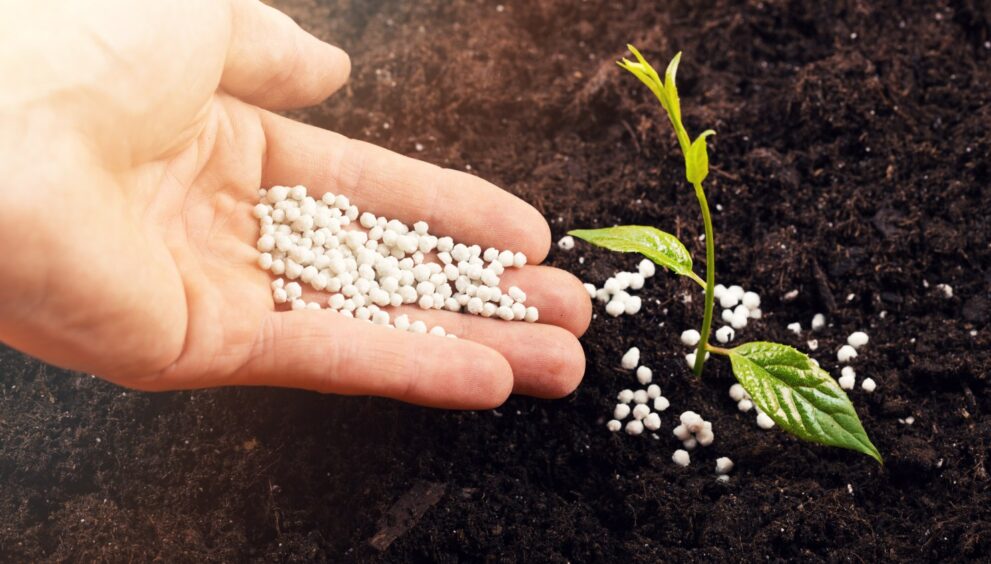Understanding NPK Fertilizer for Optimal Plant Growth

Introduction
NPK fertilizer is a vital component in modern agriculture, providing essential nutrients to plants for healthy growth and optimal yield. Understanding its composition and application methods is crucial for farmers and gardeners alike.
Understanding the Components of NPK Fertilizer
NPK fertilizer contains three primary nutrients essential for plant growth: nitrogen (N), phosphorus (P), and potassium (K). Each nutrient plays a specific role in the development of plants.
Nitrogen (N)
Nitrogen is responsible for promoting leafy, green growth in plants. It is a vital component of chlorophyll, the pigment that allows plants to photosynthesize and convert sunlight into energy.
Phosphorus (P)
Phosphorus aids in root development, flowering, and fruiting in plants. It is involved in energy transfer within the plant and plays a crucial role in the formation of DNA, RNA, and ATP.
Potassium (K)
Potassium contributes to overall plant health and helps in the regulation of water movement, nutrient uptake, and enzyme activation. It enhances plant resistance to diseases and stresses.
Importance of NPK Fertilizer in Plant Growth
NPK fertilizer ensures that plants receive a balanced supply of essential nutrients, promoting healthy growth, and development. It addresses nutrient deficiencies in the soil, which can limit plant productivity.
Different Types of NPK Fertilizers
There are several types of NPK fertilizers available, including compound fertilizers, complex fertilizers, and blended fertilizers. Each type offers distinct advantages depending on specific agricultural needs.
Application Methods of NPK Fertilizers
NPK fertilizers can be applied to plants through various methods, including soil application, foliar application, and fertigation. The chosen method depends on factors such as crop type, soil conditions, and growth stage.
Factors to Consider When Choosing NPK Fertilizers
When selecting NPK fertilizers, it is essential to consider factors such as soil type and pH, crop type and growth stage, as well as environmental conditions. Proper consideration of these factors ensures effective nutrient uptake by plants.
Benefits of Using NPK Fertilizers
The use of NPK fertilizers offers several benefits, including improved plant growth, increased yield, and balanced nutrient supply. It enhances soil fertility and overall crop productivity, leading to better agricultural outcomes.
Common Mistakes to Avoid When Using NPK Fertilizers
To maximize the benefits of NPK fertilizers, it is crucial to avoid common mistakes such as over-fertilization, under-fertilization, and incorrect application timing. These mistakes can lead to nutrient imbalances and reduce plant health.
See more article for click here.ojota chemical market
Sustainable Practices in NPK Fertilizer Application
Adopting sustainable practices in NPK fertilizer application, such as soil testing, proper dosage calculation, and consideration of environmental impact, promotes efficient nutrient management and reduces the risk of environmental pollution.
NPK Fertilizer Management in Organic Farming
In organic farming, NPK fertilizer management involves utilizing natural sources of nutrients to maintain soil fertility and promote plant growth. Organic NPK fertilizers derived from compost, manure, or plant residues are commonly used.
Case Studies: Successful NPK Fertilizer Application
Case studies highlighting successful NPK fertilizer application demonstrate its effectiveness in improving crop yield and quality. These real-world examples showcase the importance of proper nutrient management in agriculture.
Future Trends in NPK Fertilizer Production and Application
Advancements in NPK fertilizer production and application methods are continually evolving to meet the changing needs of agriculture. Future trends may include innovative formulations, precision agriculture techniques, and enhanced sustainability practices.
Conclusion
NPK fertilizer plays a crucial role in modern agriculture by providing essential nutrients for plant growth and development. Understanding its composition, application methods, and proper management practices is essential for maximizing crop productivity while minimizing environmental impact.
Read more artical using this keyword.Almond
FAQs on NPK Fertilizers
- What is the role of nitrogen in NPK fertilizers?
- How do I choose the right NPK fertilizer for my crops?
- Can NPK fertilizers be used in organic farming?
- What are the consequences of over-fertilization with NPK fertilizers?
- How can sustainable practices be incorporated into NPK fertilizer application?


 English
English 


